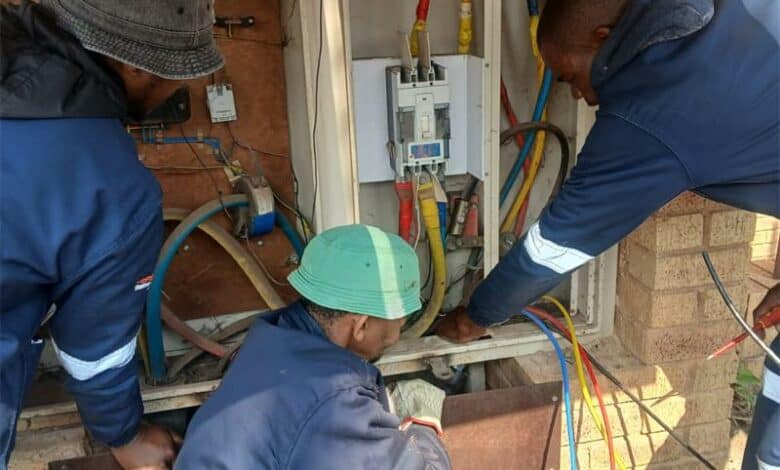With collection rates lagging, lawyers expose a regime in meltdown.

Joburg’s residents, tired of being milked by a billing system which is in meltdown as desperate efforts are made to increase revenue at all costs, are hitting back through the courts, where case after case shows judges running out of patience with the City of Joburg.
Errors in accounts, inflated tariffs and unlawful disconnections have become commonplace. Billing disputes are no longer minor irritations; they are existential threats.
One resident received a shocking bill for R26 million; others find their services cut off despite court orders.
At the recent Johannesburg Crisis Alliance summit in Joburg, Khule Duma of the Presidential Johannesburg Working Group, laid the problem bare: revenue collection sits at just 82%, well short of National Treasury’s 95% benchmark.
“It is imperative to get finances in order and make sure funds are there to fill the gap in service delivery,” he said.
Systems failing
For residents and businesses, the courtroom has become the only place left to fight for fairness.
Chantelle Gladwin, a lawyer whose firm has worked in the municipal billing dispute space for 18 years, said the city was losing more and more cases.
“Over almost two decades, we have seen top management come and go at the city, with little to no change for the better in relation to the billing crisis,” she said.
The real problem, she argued, is systemic: “The roots of the problem arise from the city’s systems not being fit for purpose.”
For the past 18 years, her firm has worked on the front line of Joburg’s municipal billing disputes.
In that time, management at the city has changed repeatedly, yet the fundamental billing crisis facing residents has shown little improvement, she said.
ALSO READ: Elderly Craighall Park couple face R143k City Power bill, for a meter that’s not theirs
Different government, same issues
Despite promises from successive administrations, systemic issues remain entrenched.
“This is not to say there are no capable people inside the city. In fact, many officials are dedicated and work tirelessly to bring about change. The problem, however, lies in political structures and senior management failing to confront the most critical flaws in the city’s systems,” she said.
The weaknesses manifest in several damaging ways.
Residents often find that queries are automatically closed after 30 days, even when unresolved.
“This leaves them vulnerable to credit control measures such as disconnections and summonses, forcing customers to log duplicate queries month after month,” said Gladwin.
“At the same time, the city runs on multiple computer systems that do not integrate with one another. Departments responsible for disconnections often cannot see when a dispute is flagged, meaning services are cut even when a query is pending.”
Bribes
Further undermining trust are allegations that some contractors accept bribes to delay cutoffs, while showing little empathy for customers who are waiting for responses from the city.
“This breeds resentment and makes even paying customers feel criminalised,” adds Gladwin.
But there appears to be some hope.
“In recent months, there have been signs of progress. Top city officials have shown a new willingness to engage, and task teams have been set up under initiatives such as the President’s Working Group to address systemic failures,” said Gladwin.
“We are cautiously optimistic. If these efforts take root, residents could see real benefits.”
Among the most common failures in the city’s billing system:
- Grossly inflated or estimated invoices;
- Due dates changed without notice, leading to unfair penalties;
- Delays in crediting payments;
- Illegal cut-offs even on fully paid accounts;
- Meter and erf mismatches causing incorrect bills;
- Outdated or inaccurate meter data after installations;
- Prepaid meters disconnected due to wrong erf links;
- Disconnection notices sent to incorrect addresses;
- New owners saddled with inherited debt;
- Overvalued properties with a flawed, slow objection system;
- Months of backdated billing;
- Entities like City Power, Joburg Water and Revenue passing the buck;
- Disconnections without warning, often on Fridays, long reconnection delays and hefty fees; and
- Queries closed automatically after 30 days, even if unresolved, leaving residents vulnerable to cut-offs.
The result, said Gladwin, is that paying customers are “criminalised” by a city that punishes them for its own dysfunction.
ALSO READ: Here’s what happened to Ekurhuleni’s missing R2 billion
Billing disputes that highlight systems collapse
Client G: The guesthouse in limbo
In 2011, G rezoned his property with the City of Johannesburg’s approval to operate as a guesthouse.
A decade later, the city reclassified the account as “business use”, backdated to 2018.
Sewer charges and penalties ballooned to R250 000. Despite repeated queries, letters of demand and appeals, nothing was resolved.
In August 2023, the High Court in Johannesburg ordered the city to rebill the account within 14 days and barred disconnections until the process was complete.
Yet the city ignored the order and disconnected the property weeks later.
Since then, G has endured five further unlawful disconnections. HBGS, G’s law firm, has launched contempt proceedings against the acting municipal manager.
Tarica v City of Joburg
The Tarica family discovered their municipal account, still registered in the name of a deceased relative, riddled with decade-old charges and faulty meters.
When the city disconnected the supply, they went to court. The judge interdicted further cut-offs provided current bills were paid.
Later, when the city argued the order was vague, the judge shot back: “A court may correct a patent error in a municipal debt judgment order under Rule 42(1)(b) without revisiting the merits.”
Geranium Mansions
In December 2024, City Power cut supply to a residential block just two days after serving notice, despite its own rules requiring seven.
The high court was unsparing: “Termination of the supply of electricity to the property was declared unlawful.”
The judge ordered reconnection within 24 hours and imposed punitive costs, condemning the city’s conduct as a “continued abuse of power with unflinching resolve”.
ALSO READ: City of Joburg billing failure wrongly connects meters, costs resident thousands
The R26 million invoice
One property owner received a single bill for R26 million, supposedly covering five years of “unbilled” electricity.
An urgent interdict blocked disconnection.
Eventually, the city admitted the meter was untraceable and wrote off the charge.
Trustees v City of Joburg
In April, trustees of a building won an important protection: as long as they paid current charges, the city could not disconnect services while arrears were disputed.
The principle was simple: pay for today, fight later about the past.
Joseph v City of Joburg
All these judgments build on the Constitutional Court’s Joseph ruling, which held that residents must receive reasonable notice before disconnection.
The city has tried to evade this by framing cut-offs as “illegal connection removals”, where no notice is required. However, courts have reaffirmed that if an account exists, notice and fair process are non-negotiable.
The city’s response
City of Joburg spokesperson Kgamanyane Maphologela dismissed the complaints, saying they are “baseless” and “without merit”.
Service disconnections are only carried out after multiple notices, SMSes, and visits, and always on weekdays during business hours, he said.
The city is owed more than R10 billion by some 16 000 defaulting customers.
An open query or legal matter does not absolve a customer from paying for services they are using, he added.
In another move to improve service delivery, the city has handed over billing responsibilities directly to Johannesburg Water and City Power, which started independently invoicing customers from 1 July. They were previously handled by the Revenue Shared Services Centre.
Residents will still receive only one, single statement, but billing queries for water and sanitation will now be managed by the two utilities, said Maphologela.
City Power said it has launched its own turnaround strategy by integrating 56 of its finance staff. It is also doing a city-wide meter audit to link meters to correct accounts.
Joburg Water managing director Ntshavheni Mukwevho said this separation marks a turning point in its commitment to better service delivery and responsiveness, which will result in improved accuracy in water bills, faster resolution of billing queries, more direct communication with the utility and enhanced transparency and accountability.
This story is produced by Our City News, a non-profit newsroom that serves the people of Joburg.
NOW READ: CoJ criticised in another billing dispute judgment






